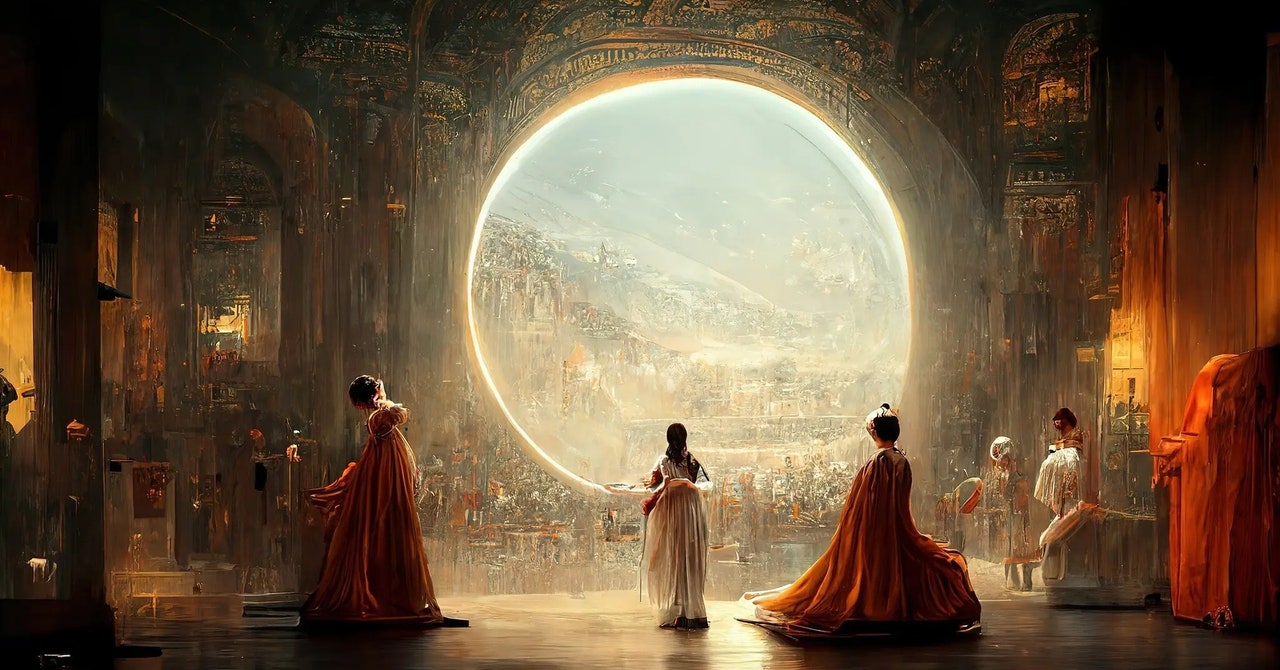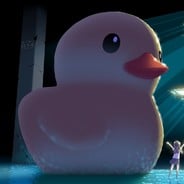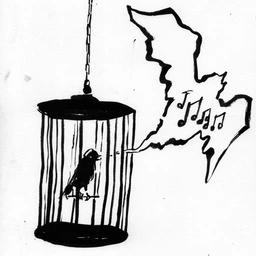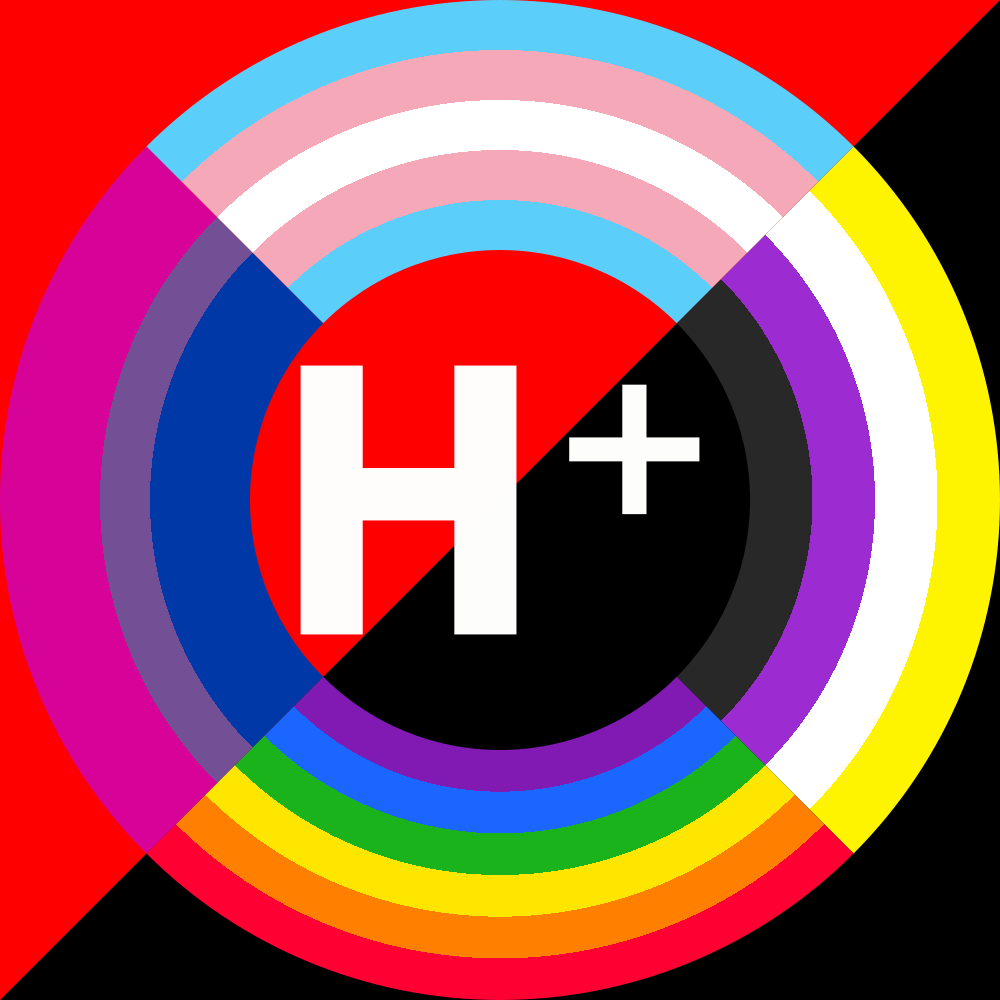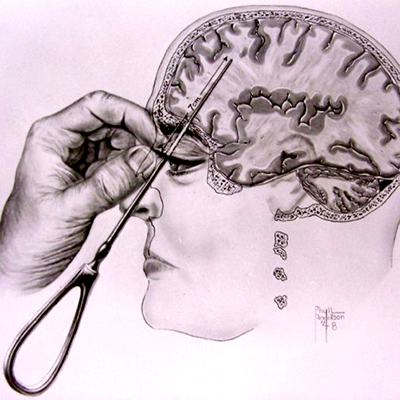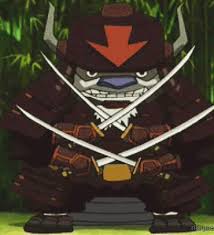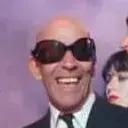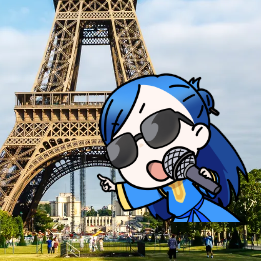- cross-posted to:
- [email protected]
- [email protected]
- [email protected]
- cross-posted to:
- [email protected]
- [email protected]
- [email protected]
Why This Award-Winning Piece of AI Art Can’t Be Copyrighted::Matthew Allen’s AI art won first prize at the Colorado State Fair. But the US government has ruled it can’t be copyrighted because it’s too much “machine” and not enough “human.”
Allowing people to copyright A.I generated art could lead to huge issues where someone could just churn out generated images like no tomorrow and throw out copyright claims left and right. It could even lead to situation where you can’t really create any art because it’s probably something that’s already been generated by someone or close to it.
That’s what I have been saying. If the courts rule that AI generated art is copyright able. What stops some multi-billionaire from copywriters basically every logical arrangement of words or images or whatever. Heck they would probably even offer to fund employing the copyright office with contractors that they pay for to speed up the process and the government would say it’s a good thing because they are saving taxpayer money…
To file an infringement suit they’d need to have paid registration for each work which, even for the exorbitantly rich, wouldn’t be remotely feasible for all logical arrangements of words/images. There’s probably not even enough space in the Universe or time until its heat death to generate and store all such images.
Even if they did, copyright doesn’t protect against against independently created works that happen to be similar or even identical - so they wouldn’t be exhausting some limited set of possible works by doing so.
For my understanding artistic works get copyright from the moment of their creation. This would allow one to pick battles based on how lucrative they may potentially be.
You dont really need art museum of babel for this but you just tons of different works that may contain unique characters, structures or objects similar to what someone might be able to imagine or has already imagined.
You may draw fan art with disney characters but its actually illegal to sell said art work without Disneys aproval until copyright expires. Now if anyone can start churning out for example A.I generated web comics left and right the chances for almost identical designs increases by a lot.
For my understanding artistic works get copyright from the moment of their creation. This would allow one to pick battles based on how lucrative they may potentially be.
In the US, you need your copyright to be registered in order to file an infringement suit or be granted statutory damages. This must be done prior to the infringement, so they wouldn’t be able to pick and choose which to register after the fact. The fact that (unregistered) copyright arises from the moment of creation is true, but not particularly useful here.
You dont really need art museum of babel for this but you just tons of different works that may contain unique characters, structures or objects similar to what someone might be able to imagine or has already imagined.
Copyright is not the same as patents or trademarks; someone coincidentally creating something very similar or even an exact replica of your work is not infringement.
If whether you copied from their work or independently made similar choices is under question - then close similarity of the works could skew the balance of probabilities. However, the courts will be able to see that coincidental similarity is far more likely if a colossal number of images have been registered.
You may draw fan art with disney characters but its actually illegal to sell said art work without Disneys aproval until copyright expires.
It’s still copyright infringement even if you publish it non-commercially, but a Fair Use defense would likely hold up.
So your main argument against it is “anyone could do it”?
What? Lol
This is more of an issue with copyright law than of A.I. content generation. All you really need to do is create an algorithm that creates images based on every combination of pixels. There were a couple of lawyers who did this with melodies by creating an algorithm to generate every combination of 12-note, 8-beat melodies. One of the lawyers has a TED Talk where he goes into more detail with the issues of copyright laws: https://youtu.be/sJtm0MoOgiU
Here is an alternative Piped link(s): https://piped.video/sJtm0MoOgiU
Piped is a privacy-respecting open-source alternative frontend to YouTube.
I’m open-source, check me out at GitHub.
The museum of babel already exists.
However with generative A.I you dont need artwork for every combination of pixels. Machine learning seems to be really good at finding patterns in everything we may do or think.
With generative A.I we can use this information to create increasingly more human like output. In terms of art mimic and blend art styles, create new designs based on existing ones etc.
Much more elegant and way cheaper than using brute force algorithms.
This is one reason why copyright/patent law is stupid to begin with. Nothing but a state-enforced monopoly on a slice of all possible information in a category. Imagine if people started copyrighting basic trinomials.
What’s stopping billionaires from hiring artists now and just having them slave away at 1632961190 images of whatever they could think of for the same purpose? The art doesn’t even need to be good, it just needs to be something you can copyright
You mean, like stock photo websites? That are owned by Koch brothers?
Making AI art not copyrightable is probably the best reasonable alternative that we could hope for.
Companies are always looking to cut costs and getting some computer algorithm to churn out endless art without having to pay an artist would be a corporate holy grail. Except that if that artwork then can’t be copyrighted and thus monetized (or not as easily monetized), then it ruined or at least lessens their push to replace all their workers with AI.
They will just churn out pictures from midjourney and hire a cheap artist to touch them up and then copyright that.
That’s basically what they did for the intro to Secret Invasion on Disney+. They used AI to create it and then touched it up. It still looks like shit, much like the show itself.
That’s an interesting thought, that could potentially create corporate day jobs for artists.
Edit: I don’t believe in this idea, but thought it interesting. It’s better for artists to exercise creativity.
Companies can always just lie about it as well
The real solution is to abolish copyright
Absolutely based af :)
How do artists pay for their food and rent then?
Depends on how radical we’re talking.
On the less radical side - UBI, donations, contracts for creation of art that people want even if it’s not copyrighted afterward, Convenience Factor (often used by FOSS projects), and also the fact that a lot of art is created and intended for free redistribution anyhow .
On the more radical side: re-examining our entire concept of work and labour and rent, decentralused gift economies, automation, the destruction of capitalist structures as a whole, etc.
That would be great in the fully automated space gay commune, until then though we don’t want artists to starve.
gay?
For some reason a lot of the Internet relates communism with homosexuality. I think maybe because heterosexual people established capitalism? Idfk
I guess just homophobic slander? To be fair I read it as a “space joyful commune”, which seemed to make most sense. Giving it the benefit of the doubt…
This is a very delicate and complicated matter, part of me thinks that making AI works non copyrightable would incentivize human art
Given the presence of stolen artwork in the training data I don’t see why it should be copyright able.
Also award winning? It honestly looks like the kind of liminal mindfuckery most models could output. There’s nothing particularly impressive with the piece.
iirc it was submitted to a small art contest without disclosing it’s AI generated and it won a prize… which made a lot of people very mad
If this is the one in thinking of, they disclosed it was made using midjourney, but the judges didn’t know what that meant and didn’t ask.
Eh. I’ve seen abstract art that people are in awe with throughout my life. And like the uneducated swine I am, I’ve never thought they were impressive either.
Art appraisers are weird.
Edit: I saw the piece in question. This one is a tricky one, because if a human painted it, it would be impressive. Very nice details. But since it was generated by a machine in minutes… eh.
But according to the article, it wasn’t generated in minutes. The artist went through over 600 iterations of tweaking the prompt to get what he wanted. Sounds like days or even weeks of work probably. And then made additional tweaks via Photoshop.
Not too say that makes it any more impressive, but it wasn’t something that was without effort.
Point taken. In that case, I guess one can recognize the effort. Still, the impressive part of the piece is the style, which, if one were to assume was made with actual oil paint, it would be impressive.
With AI, I would explore styles that are inherently difficult to produce digitally. And yes, “oil paint” would be difficult to produce with digital tools alone outside of AI (maybe there are good plug-ins for it?) But you know what I mean. I don’t even know which styles those would be.
You can make digital illustrations with a graphic tablet and the right digital brushes that look remarkably similar to oil paint. Because with a graphic tablet and pen you can utilise tilting, pressure, speed, etc. The colours will often simulate how actual oil paints work (well, at least they try). It’s kinda like a very easy casual mode of actual oil painting.
Yeah, I was aware of these tools. I don’t know what to think anymore…
Are you the artist when you comission an artist to draw something the way you want?
When I commission an artist, I’m probably not looking over their shoulder the entire time telling them exactly what to do. But that does bring up an interesting point. Assume I have no use of my limbs and an artist agrees to help me make a painting. I tell them exactly what to do, which colors to use, where to make paint strokes, etc. I am guiding the image, but they are actually painting it, and their own skill and technique and style will obviously play into the final image. I don’t know who would have more of a claim to the image in that case.
You don’t tell the AI where to make each stroke, exactly what colours to pick and mix, every detail of the composition. The AI preselects everything for you by considering what the majority of people like in pictures.
No one would say the person “guiding the image” is the one who created the image. This is why ideas aren’t copyrightable. Everyone has a ton of ideas. It’s the execution that matters, which takes skill, patience and dedication.
Most clients have a very defined idea what they want to have drawn or designed. Especially in a higher price segment. This often takes weeks or months and multiple lengthy discussions between the artist and the client. Never have I seen a client later say “Well that took a lot of talking from my side. I guess it’s basically me who created this picture!”
I think a lot of people underestimate how much work it takes and since you don’t really see anyone creating the image, you get the impression you somehow magiced it into existence by yourself.
Read the article. He added details and the description fed into the prompt was 624 words long. He basically wrote a page describing the scene he wanted created.
Which I can also do. “Imagine a cave full of cats. The first cat is pink with yellow dots. The second cat glows in the dark. The third cat…”
I guess art involves expressing what you want to express it, sure. But also how you express it is part of it as well. If you make the strokes yourself, it’s more impressive. A machine? You gotta do better than making it look like someone painted it.
It’s like 3D printing. A 3D-printed statue? Neat. But not terribly impressive. A 3D figure that defies all optical illusion explanations? Now we’re talking.
Is it your art and are you the artist when you describe a painter or illustrator what they should draw? I can tell you, many clients use more than 624 words.
If you wrote 624 words into a machine like a typewriter and published it it would be copyrighted. But those same 624 words fed into another machine can’t be. Funny.
The words can be copyrighted alright, that’s not the problem here. Even without publishing them, the creator already has copyright over his 624 words. There’s probably nobody who would be interested in publishing them because, let’s face it, they aren’t that interesting on their own, unlike a novel or a poem. All the stuff that makes this a piece of art is added by the AI, whereas a printing press adds very little to nothing to a book.
I agree completely. I think this is the best solution to the AI replacing human artists problem. Big companies can’t use AI to replace humans because if they do, whatever they make will be ineligible for copyright and everyone will be free to rip them off.
I just want to point out that the description beneath the image in the article is hilarious.
This is Allen’s AI-generated artwork, which we can publish without asking him because, as the article notes, it’s not eligible for copyright protections.
This will change the first time a big pharma pill designed by AI hits the market.
Or really anything that’s more practical than art.
Or someone figured out how to reliably tune AI to just happen to generate existing art and tries to use it to bipass/invalidate the copyright on that piece of art.
You can already do that with over fitting or getting lucky with duplicates in the dataset(<6*10^-5% chance for stable diffusion). The resulting work is still protected under the original creator’s copyright because it’s almost identical. Same way that if you photocopy an image it doesn’t remove the copyright even though slight details will be off due to inaccuracies.
Drugs are patented, not copyrighted, and handled by the US Patent Office. This is a decision by the US Copyright Office.
Not the same thing, and I would not be surprised if the Patent Office decides drugs designed in part with AI tools can still be patented, while the Copyright Office decides art cannot be copyrighted.
AI are already generating antibody treatments. Companies provide AI with the disease/issue and antibodies that kinda work, then have the AI generate antibodies to fix the disease/issue. The best antibodies are then made in a lab and tested in vitro. However, as somone else noted, antibodies/medications are patented, which is different than copyright. Patents can be done on the process of making the antibody so you patrent the final process of making the antibody, not the AI work to come up with which antibody to make. Source: I attended a Patent Law seminar on this a few months ago.
I look forward to trusting my medical well-being to algorithms which can be completely fucked by the idea that Kenya starts with the letter K.
They’ll just say this random scientist over here that signed away to the rights of anything he thinks of came up with it.
I would agree. Right up until the guy pulled it into Photoshop to make tweaks, adjustments, and corrections.
We give copyright for much less.
Tweaks adjustments and corrections need a reference material. The raw AI image needs to be published first for his tweaks to be copyrightable. Anyone wanting to claim copyright on edits should produce the initial uncopyrightable image too.
but then that makes it not his original work and he shouldn’t be putting it in competitions.
The first half isn’t relevant under copyright law, you can publish edits to old public domain works without publishing the original, this is extremely common even by museums.
The second point is however completely fair
I mean more in the sense the you can make sense of what someone brings into the original art by comparing it with the original. And that’s what copyrightable or not. An edited AI art without its raw - where the generated image starts and someone else’s contribution begins is a black box.
We give copyright for much less.
I find this an interesting point. My understanding is that AI art just isn’t considered enough work on the part of the human creator, presumably because of the idea that you only need to come up with a prompt.
But at the same time, most photographs and videos are copyrightable even if you literally just pointed your phone at whatever without any talent at all. IIRC, the idea of photographs being copyrighted was originally a controversial one, but these days is generally accepted. As long as a human took the photo (and not, say, a monkey, as a famous case found).
Is pointing a phone and clicking a button more of a human contribution than coming up with a prompt? What about if they had to iteratively tune the prompt and mask out parts of the image? In my book, I’d say that’s more human contribution than many photographs.
The artwork, Théâtre D’opéra Spatial, was created by Matthew Allen and came first in last year’s Colorado State Fair.
No. No he didn’t create it. He put words into a black box.
“He didn’t create it. He moved a mouse.”
“He didn’t create it. He put commands into a keyboard.”
“He didn’t create it. He pressed the camera trigger.”
“He didn’t create it. He threw store-bought paint at a canvas.”
“He didn’t create it. He cleaned some dirt off the wall.”
“He didn’t create it. He was inspired by gods.”
Where you see a categorical difference, I see a qualitative one. AI-generated art can be nothing more than putting words into a blackbox, but it can also be a day-long process of tweaking dozens of parameters to get what you want from the words you put into the box. A child can slather paint onto a canvas without much thought - but that doesn’t mean great artists drawing complex, intricate paintings isn’t art, does it?
Generative AI is a tool. It can do more than most tools, but still, it is something wielded by an artist.
As I’d just written in another reply here, there is a world of difference in describing an illustration and creating an illustration.
I have to say that when I focused on computer-aided graphic design, my instructors who had done that kind of work with material supplies totally felt my work was invalid.
And when I was writing essays in high-school English and getting downgraded for poor penmanship, my teacher refused to let me word-process my work, lest I write a whole essay with the touch of a button.
So yes, creators have had their efforts minimized from the dawn of time, especially as new technology makes output better or easier.
Still, this isn’t about the art, it’s about the capitalism. If we had a society where no-one had to toil for a meager existence, then artists could do their thing for the sake of creating beauty and not to earn a buck. I believe post-war social programs in the UK drove the Rock-&-Roll revolution in the 1960s (advancements in electric guitars also did some heavy lifting).
So… feed our artists?
Same goes for lightning a fire without and with a lighter.
But you are creating the image as it’s often never what you intended on the first try. If anything they are editors, and last I checked we aren’t taking any rights away from editors. Someone else made the material and “you” manipulated it into a better product or into what your vision actually was.
Editors also don’t have copyright protections on what they edit
Even if I were to grant you that generative AI is just “describing an illustration”: other people say there is a world of difference between painting something with your hands and using a mouse, yet I think digital illustration is as real as physical illustration. Yet other people say there is a world of difference between creating something from the ground up and using store-bought materials and tools, yet I don’t discount artists who do just that.
But I don’t grant you that, because if I simply describe an illustration, the generative AI will not give me anything close to what I want. I have to learn the prompting language of the model (what words and phrases result in what?), I have to learn the influence the many different parameters have on the output, and I have to learn how to use things like prompt weighting, negative prompts and the like to get what I want. It’s something completely different from describing an illustration.
And that’s ignoring things like variant generation, inpainting, outpainting and the many different things that are completely removed from just “describing an illustration”.
Learn how to make a digital illustration, learn to make an oil painting and learn to make an AI image. Then we can talk.
I can do all three (worked on comission basis as a digital illustrator and did make Sci-Fi illustrations with acrylics and ink in the past). Generating AI images is not even in the same universe as the ballpark where digital illustration and traditional painting are playing.
It’s like saying watching someone’s Let’s Play of playing GTA is “kinda similar” to driving a Formel1 sports car yourself. Because you still have to turn on your computer and find a good streamer.
Learn how to make a digital illustration, learn to make an oil painting and learn to make an AI image. Then we can talk.
Done. What do you want to talk about?
Generating AI images is not even in the same universe as the ballpark where digital illustration and traditional painting are playing.
And what ballparks are there? How many ballparks exist in the realm of illustration, and where are the borders?
I just spent literally 31 seconds making this image:
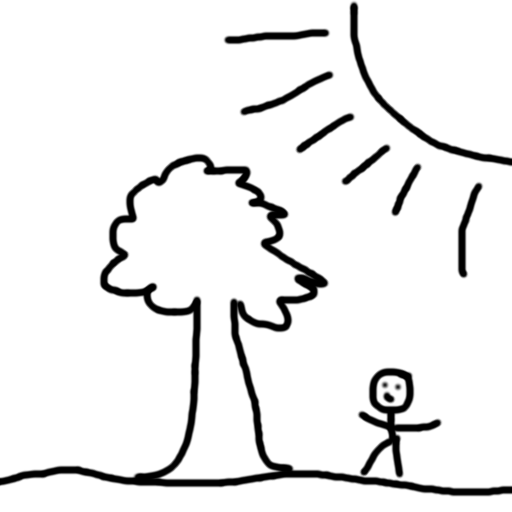
According to what you write, this has a much higher artistic value than the header image of the linked article. Now please, explain to me: what value does this view bring to any discussion?
It brings value to the discussion if the discussion revolves around whether artists should be paid and how much. Whether AI images should be committed to art contests. Whether someone using AI to create an image should have copyright on that image. How much value we put on the time and effort it takes to learn artistic skills. Whether we want people to continue to take on that endeavour. Etc.
Actually I think discussing the differences and similarities between AI image generation and other forms of creating art is quite central to the issue.
🤓
He did some touch up in photoshop before submitting it.
Touching up your photograph or painting does not make it mine.
So…he did something and then by a process something beautiful was created. How is that different from pour painting?
He put words into a box == he just tipped over a can of paintNow I’m just hoping some idiot out there is trying to copyright melting crayons down a blank canvas.
This seems to follow a similar line of thought ( On Art In Context )
Yea, we’re well into DADA-ist territory to find interesting reference points for the timeless question of “what is art” in this discussion.
I’m curious: how do you feel this relates? Does the banana feel like it should or should not be art and/or copyrighted? Is it an energy/effort quality being compared to the end result? Or just the concept vs physical manifestation of the concept?
Because the AI controversy isn’t about art, it’s about money, and the notion that artists have to art to stay alive. Specifically, they have to please rich patrons, often by providing a thing that fits into their own vanity project. That said, it doesn’t matter how much time someone spent on a thing, whether they poured their soul into a 100,000 word volume, or taped a banana to a wall. All that matters is if it entertained a Rockefeller enough that they are willing to pay a fee.
If artists weren’t on the brink of starvation and homelessness and getting shot by law enforcement, then AI would be a new keen tool. And it’s not even that it will replace artists, but that rich guys think it’ll replace artists and it will save them from tossing some coins at riff-raff.
We actually saw this during the 2020 epidemic and lockdown, that artists given a grocery budget, a warm home and nowhere to go will get arty on their own, and by this way we could have a very robust public domain. But that’s now how we do things.
Sorry, did you take this as me coming at you? I was genuinely interested in your take on the banana’s relevance because high conceptual contemporary art is very easy to dismiss as “not art” by the layperson which makes it an interesting touch point for the AI value debate. I very much understand and agree with what you’ve said here, and you’ve described me at two separate stages of my career.
I find it fun that you mention a 100,000 word novel because I keep going back to thinking about how “a picture is worth a thousand words” is probably seeing some major economic volatility nowadays. That adage is very much in question now. Some of these prompts are getting way up there and, personally, the results very rarely look like they’re worth the effort.
As it exists, AI isn’t even a keen new tool, yet. But I am biased as someone who routinely creates visuals from scratch and uses a lot of different tools. It’s clearly mind-blowing for the folks who don’t. It is a kinda fun gadget, but it’s really no more sophisticated than good old “content-aware” and just as fiddly and commercially not useful. The prompt engineers will have words for me, but really: this tech is laughably dumb at this stage.
But I don’t believe it ever really will be keen with this mode of operation as it’s basis - all this will ever do is force the homogenization of visual anything/everything. We’ve already seen similar thanks to Pinterest and ArtStation and any other community drawing for the same reference points. Fantastic if you don’t care about visuals but uh, hope you’re really into hyper-mainstream media because that’s all it will look like.
Because you’re right, it’s only the non-artists who think it can replace artists -because they don’t actually value art, just the benefit it grants them. Not that they value the artist either, obviously. These are people who agree with AI developers that not only can visual design be formulated, but even worse that it should be to make it easier/cheaper/whatever.
But the sad reality is that it’s here. And it’s impressive enough to convince those with resources that it is worth pursuing further down this path of development. It isn’t, but they’re definitely not going to go back to carve out protections for the creative community. So we are stuck with a few options.
-adapt - work it into your flow because you’ll have to at this rate. Sucks, but they fucked the game.
-abolish - yea, we’re not going get that far, but we might be able to maintain this copyright denial which will keep it from replacing jobs by way of being unusable content.
-compete - obviously it’s going to be impossible to do so directly as an artist versus an AI for output, but keep in mind this still just the first wave of this concept. Future iterations of the concept (I’m talking specifically not future versions of current tools) can still be about challenging the basis this technology operates on. Something ethically designed to respect and reward the human behind every element the AI interacts with. They’d love for us to think they’re too dominant to challenge, but look at how many copycats exist already. There’s tons of room for sending this wave to the obsolete pile.
So he did make it. The tool can’t generate anything without something feeding it prompts. I mean technically it can but it will just be random totally incoherent stuff.
Yes, US copyright law requires human involvement to grant authorship. AI generated works are not eligible for copyright and it’s unlikely to change unless copyright legislation goes through to yet further restrict copyright.
Did you read the article? In this case he put in quite a bit of work to generate and alter the image:
He sent a written explanation to the Copyright Office detailing how much he’d done to manipulate what Midjourney conjured, as well as how much he fiddled with the raw image, using Adobe Photoshop to fix flaws and Gigapixel AI to increase the size and resolution. He specified that creating the painting had required at least 624 text prompts and input revisions.
And he is essentially claiming that the work should be transformative enough to be copyrightable. Even if the original image is not.
That all makes this case more interesting then a lot of others in the past as it is about AI generation with some human input. Not just someone generating vast amounts of work to find something they like (which likely will never be copyrightable). When this goes to the courts will will help to define the line of how much and what type of alterations are required to claim copyright over the works.
Not all AI work is the same, but I am glad that the copyright office is pushing back on these claims. Putting the burden of proof onto the author that they did have enough input into the work. The big open question ATM is how much input is needed and what that input can look like.
He’s lying though. He’s pretending the original (wierdly blurry) output was the only AI output, but the details and basically everything else is also AI generated. Nothing is his own skill, brushstroke or even artistic effort/craft, other than prompting the machine-image-generator that he sources the work from.
I only have this article to go on, and it does not suggest that at all. What sources do you have that show he is lying about his input to the artwork?
I follow artists on twitter. And they pointed out that he was trying to imply that the details were his own work.
Who is they? Do you have links?
I’m not trying to be critical or skeptical, just want to be as informed as possible.
The solution would be to cancel copyright and make everything free for everyone
It’s almost impossible to have a living wage as an artist even know. Than it would definitely be impossible.
Off topic but anyone know if you can download this art in high-res from somewhere?
This is an amazing piece, regardless what I think about the AI art shitshow in general.
It’s a lovely piece, created by nobody.
It’s like how you can look at and appreciate a beautiful cloud or leaf or rock formation which exists in the world without meaningful human expression, but you can’t copyright it or otherwise claim to be its creator or exclusive owner.
…or it’s created by literally everybody. If the AI is trained on public data I’m not sure how we can claim “nobody” created it.
“everybody” and “nobody” pretty much means the same thing in the eye of law in this context
If it is “everybody”, then it follows common law and is public domain. If it is “nobody”, then it is abandonware.
Created by the artist. An artist using AI is no different than an artist using AfterEffects or other processing medium. Using your example, it’s essentially saying “Earth” made a beautiful picture and not the cameraman.
Without the human element manipulating the AI, the AI is presently worthless. If we ever create AGI that can create art on its own, then we have a real discussion on our hands.
Luddites who are mad that AI is beginning to show promise can hate all they want, but this is the reality.
Hard disagree here, the modern western conception of art (around which the current legal and economic systems were constructed) is really opposite to the idea that the current AI tools should deserve any copyright.
Why ? The concept of art (the modern western one) is that an Art piece is composed of :- An Idea
- A form that is given to that idea by a human artist.
The idea can be given by others, to be constructed by an artist. That is usually a Patron (from where Patreon invented its name) , in spanish Mecenas, that pays the work and directs what idea and even general form it will take (the social practice is called Mecenazgo in spanish, since english has no equivalent word, i will use that ). Example: The Sistine Chapel, which was conceptualized (and paid) by the Catholic Church, including themes and general style, and was given to italian artists like Michelangelo to give the final form, which they drew themselves, with the approval of the church authorities at the end.
The current Ai tools work exacly like the Mecenazgo:
- the human person gives an input (textual, or other), the AI goes brrrrrr, and gives back an image. the person can take ir, or re-iterate the cycle with further inputs until satisfaction.
- This is really analogous with how art production ocurred in the Mecenazgo: The human input is the step 1 (an idea), the AI does the step 2 (give form to the idea). The further inputs by humans is analogous to the rough drafts the artist had to give the Mecenas first, the Mecenas described in more details and specifications what themes and forms he wanted, and that repeated until the Mecenas was satisfied with the final form the artist gave back.
The current copyright legal and economic system gives the intellectual property to the ARTIST, that made the step 2, and NOT to the Mecenas of the step 1. Because the Mecenas only had ideas, and the one who made what is considered artistic work, that deserves the legal privilege of IP, is the artist. If all someone did was tell the AI what to draw (i.e. gave an idea, general theme and general form), then the person is only acting as the Mecenas. The MACHINE is doing the artistic work, and since the machine is not a human that deserves the legal privilege, ir should be considered non copyrighted or public domain, just like the picture some monkey took of itself some years ago.
This was not always nor everywhere the social interpretation of WHO is the agent that actually made the art. Before the Renaissance, the western societies considered the Mecenas of step 1 the TRUE ARTIST, because he-she had the idea, and the person that gave form to the idea was considered a low level construction worker like stonemasons, that did not even have its name recorded. If you are wiilling to go back there, we would have to fundamentally change our interpretation of art , artists and rewrite the Sistine Chapel as created by the Catholic Church , and michelangelo is irrelevant.
A fair take, if one I have a few caveats with. I would contend that AI artists, should such a thing truly emerge, are explicitly experts in pulling art from an AI that a layman cannot accomplish.
That being said, again, it is a fair take, and certainly influenced the copyright judgment.
Not off topic…
Cool so ai art created from copyright input has no copyright cuz the input isn’t considered part of the copyright.
It goes from the same idea that if you saw someone else’s art and made your own art, the copyright of the new art would be yours, and not the one who inspired you.
We’ve seen edge cases in the music industry (Ray Parker Jr.‘s Ghostbusters vs. Huey Lewis and the News’
Hip To Be SquareI Want a New Drug ) though in most cases in music, artists routinely borrow each other’s elements.The problem is that AI generative art still requires effort from the programmer (the one who prompted the AI) and went through process of telling it what to do, curating the output, running it back through the AI again to add new elements. If that process is sufficiently long, then it warrants copyright. If that process is insufficiently long, then it challenges the copyrightable merits of artists who make quick art.
In my opinion (removed from the whole AI controversy) is that intellectual property law has been long abused, not by artists and creators but by publishers and studio owners who have used their landlord-esque positions to take control of most art, and then extend their IP rights while denying the public a robust public domain.
And they are the ones that are going to ultimately be hurt by the death of IP laws. Artists will still do art, but for the sake of expression, and then it’s a matter of the rest of society making sure they’re not exhausted by their day-job (which, according to the strikers in Hollywood, they totally are).
In my opinion (removed from the whole AI controversy) is that intellectual property law has been long abused, not by artists and creators but by publishers and studio owners who have used their landlord-esque positions to take control of most art, and then extend their IP rights while denying the public a robust public domain.
The idea that a strong public domain is beneficial to all culture has been lost. Now we have huge court cases because two different songs use a similar progression of notes. The point of copyright should be to motivate people to create more art, not prevent people from doing it.
Take the whole Under Pressure/Vanilla Ice fiasco. Nobody listening to “Ice Ice Baby” is going to then say to themselves “great, now I never have to listen to Queen again”. They are both very different songs in different genres, that use the same guitar riff.
I understand why selling pirate DVD’s should be illegal, for recently made movies that are still under print, but transforming a work should not be infringement.
It was I Want a New Drug, not It’s Hip to Be Square
Checked and fixed.
I will shamelessly recycle my comment up the thread:
The modern western conception of art (around which the current legal and economic systems were constructed) is really opposite to the idea that the current AI tools (OR the programmer that used them) should deserve any copyright.
Why ? The concept of art (the modern western one) is that an Art piece is composed of :
- 1 An Idea
- 2 A form that is given to that idea by a human artist.
The idea can be given by others, to be constructed by an artist. That is usually a Patron (from where Patreon invented its name) , in spanish Mecenas, that pays the work and directs what idea and even general form it will take (the social practice is called Mecenazgo in spanish, since english has no equivalent word, i will use that ). Example: The Sistine Chapel, which was conceptualized (and paid) by the Catholic Church, including themes and general style, and was given to italian artists like Michelangelo to give the final form, which they drew themselves, with the approval of the church authorities at the end.
The current Ai tools work exacly like the Mecenazgo:
- the human person (programmer or not) gives an input (textual, or other), the AI goes brrrrrr, and gives back an image. the person can take ir, or re-iterate the cycle with further inputs until satisfaction.
- This is really analogous with how art production ocurred in the Mecenazgo: The human input is the step 1 (an idea), the AI does the step 2 (give form to the idea). The further inputs by humans is analogous to the rough drafts the artist had to give the Mecenas first, the Mecenas described in more details and specifications what themes and forms he wanted, and that repeated until the Mecenas was satisfied with the final form the artist gave back.
The current copyright legal and economic system gives the intellectual property to the ARTIST, that made the step 2, and NOT to the Mecenas of the step 1. Because the Mecenas only had ideas, and the one who made what is considered artistic work, that deserves the legal privilege of IP, is the artist. If all someone did was tell the AI what to draw (i.e. gave an idea, general theme and general form), then the person is only acting as the Mecenas. The MACHINE is doing the artistic work, and since the machine is not a human that deserves the legal privilege, ir should be considered non copyrighted or public domain, just like the picture some monkey took of itself some years ago.
This was not always nor everywhere the social interpretation of WHO is the agent that actually made the art. Before the Renaissance, the western societies considered the Mecenas of step 1 the TRUE ARTIST, because he-she had the idea, and the person that gave form to the idea was considered a low level construction worker like stonemasons, that did not even have its name recorded. If you are wiilling to go back there, we would have to fundamentally change our interpretation of art , artists and rewrite the Sistine Chapel as created by the Catholic Church , and michelangelo is irrelevant.
The whole matter of copyright and art behind agency is not about the art itself, but money. And most artists lose their copyright (contracting to the institution that hired them) even before they completed their work.
So the controversy is not about art, it’s about money, and those who have the money, the capitalists, are eager to remove humans if they can substitute them with machines.
Now as the recent movie Tár points out, art tends to also be a victim of great man theory, the notion that a single person is responsible for art which often has multiple figures involved in its creation (It’s why Tár opens with its full credits rather than posting them all in the end. Generative AI engines only make more clear that art is a compilation of many elements assembled to create a final result.
Now for anarcho-pinko-commies like me, we see us coming to a critical mass where we’re going to have to confront the failure of our work-for-compensation system that we use to keep people alive (and justify keeping them only barely alive enough to do more work for billionaire vanity projects), because as the Twilight Zone episode The Brain Center at Whipples ( Wikipedia article ) shows us, we all will be replaced as soon as upper management can figure out how. (And that includes upper management.)
We’ve watched as Hollywood movies, games and music are more and more informed by profit. They’ve all been moving away from high-risk experimental concept art and towards content as product, hence we have perpetual sequels and cinematic universes and merchandise tie-ins. Verity Bitchie’s consumerist critique of Harry Potter ( on YouTube ) breaks down how paramount recognized the market interoperability of Harry Potter even before Philospher’s Stone was published for instance noting that 👓🗲 << everyone knows what this represents.
Art is not a celebration of humanity, but expression and beauty, and if AI could produce a fuckton of free art (it can’t, but if it could) then that would benefit a public that has long been denied a global public domain… except if only rich people have access to it, which they’re trying to do right now.
And they’re already looking to secure prioritized access to a lot of things like clean air and water, so what we should be focused on is not that AI is going to replace artists, but that artists (and everyone else) are on the verge of starving.
And yes, I’m used to people not giving much of a fuck until they’re feeling in jeopardy themselves (and then half of them want to kill the Jews over it), so I’m not expecting this to go anywhere yet.
Here is an alternative Piped link(s): https://piped.video/UBftW7FzOVI?si=cGPubD5QDtIL6fAL
Piped is a privacy-respecting open-source alternative frontend to YouTube.
I’m open-source, check me out at GitHub.
Good bot.
Nothing that judicial, legislative, and regulatory capture can’t turn around. Just need enough money and time.
I give it 5 years at most
Funny situation indeed. Thoughts:
- Copyright is particularly artificial and openly amenable to change to suit the needs of the economy and creators it applies to. So treating this as open ended is probably necessary.
- Copyright has for a long time happily provided varying degrees of protection by recognising that one may hold copyright over a work but only over a “thin” or relatively minor aspect of the work.
- While there seems to be broader factors involved here regarding the power and market dynamics afforded artists and corporations should AI copyright be protected, there also seems to be plenty of scope to recognise that actual original work can be behind an AI work, however “thin” and distinct from the ordinary categories (eg Music, Literature etc) it may be. Indeed I would question how much the judges involved actually understand this enough.
- Does anyone know how this policy is tracking with or affected by policies in whether the AI engines themselves are infringing copyright?
While my thinking is in line with what @[email protected] and @[email protected] have already said, why can’t “AI artists” just do what everybody in a profit-seeking situation does and just lie about it? “No your honor, our studies have shown cigarette smoking is not hazardous to your health,” “yes, your honor, OxyContin is completely safe,” or in this case “yes, your honor, I created this illustration.” If your conscience is really bothering you, you could claim it was AI-assisted. I wouldn’t think there’d be a “Big Eyes” prove-you-painted-that courtroom case. Am I wrong?
It detectable by actual artists, trained eyes, and probably other ai algos. Prompters have no true artistic skill 80 percent of the time, so they rely on AI to even do the finer details.
There are a few actual artists who use AI in the way scammers do (rather than as a tool to enhance their workflow), but they are rare.
Our thinking is not that different. There is a world of difference of describing an image and creating it.
But I have to strongly disagree with the rest of your assessment. Beyond the flood of six-fingered waifu, I’ve seen some beautiful, legitimate works created by this new tool. If you have to use an “ai algo” you’ve already defeated the purpose. It’s illustrations we’re discussing here, not banknotes.
BTW, do you consider Photoshop/Krita/GIMP artists “scammers”? Blender/Maya/Cinema4D artists? Who are these “actual artists” of which you speak?
In any case, we’re still in uncharted territory. And personally I’m not crazy about the work in question. It LOOKS (by my “actual artist trained eyes”) AI generated, regardless of the human Photoshop retouching involved.
BTW, do you consider Photoshop/Krita/GIMP artists “scammers”? Blender/Maya/Cinema4D artists? Who are these “actual artists” of which you speak?
This comparison automatically invalidates any point you may have made.
You say our thinking is not so different, and then defend machine-generated art as legitimate creation?
To be clear, when I say AI tools, I mean for collecting references, making poses and future enhanced basic transform/select/etc tools. I don’t mean generating entire complete peices of art.
Selling AI art on platforms that actual artists sell their work on, is a scam. Since illegitimate work is flooding human creations. NFTs are often scams too.
I still think we are more or less on the same page. I also agree with your position on NFTs. Nevertheless, “machine-generated art” as you’ve called it IS legitimate creation, just like canned baked beans is legitimate creation, just like the act of making scrambled eggs is creation. Notice that I never mentioned anything QUALITATIVE about the process. I’ve never referred to these works as “art” (however you’d like to define that) but “illustrations” which is all they are and again, for the most part, they are visibly AI…but there are exceptions, rarely without human intervention (retouching). If someone wants to sell their AI-generated illustrations, what’s the problem? Same with NFTs. What do I or you care? It’s your moral obligation to part a fool from their money.
That said, since we’ve veered way off course of the original question, MY PERSONAL OPINION is there is next to no expression of the human condition (define that as you will) in StableDiffusion/Midjourney/whatever-engine “art” and is merely (“merely,” he says!) putting the “infinite monkeys theorem” into practice. While chance and chaos is good (and not only in art), a foundation is always necessary. If “you”, untrained in composition, art history and materials, you think describing images using a certain language/method is “art”, become a writer. We’re all waiting for your bestseller.
Have a wonderfull day and thanks for the chat!
deleted by creator


